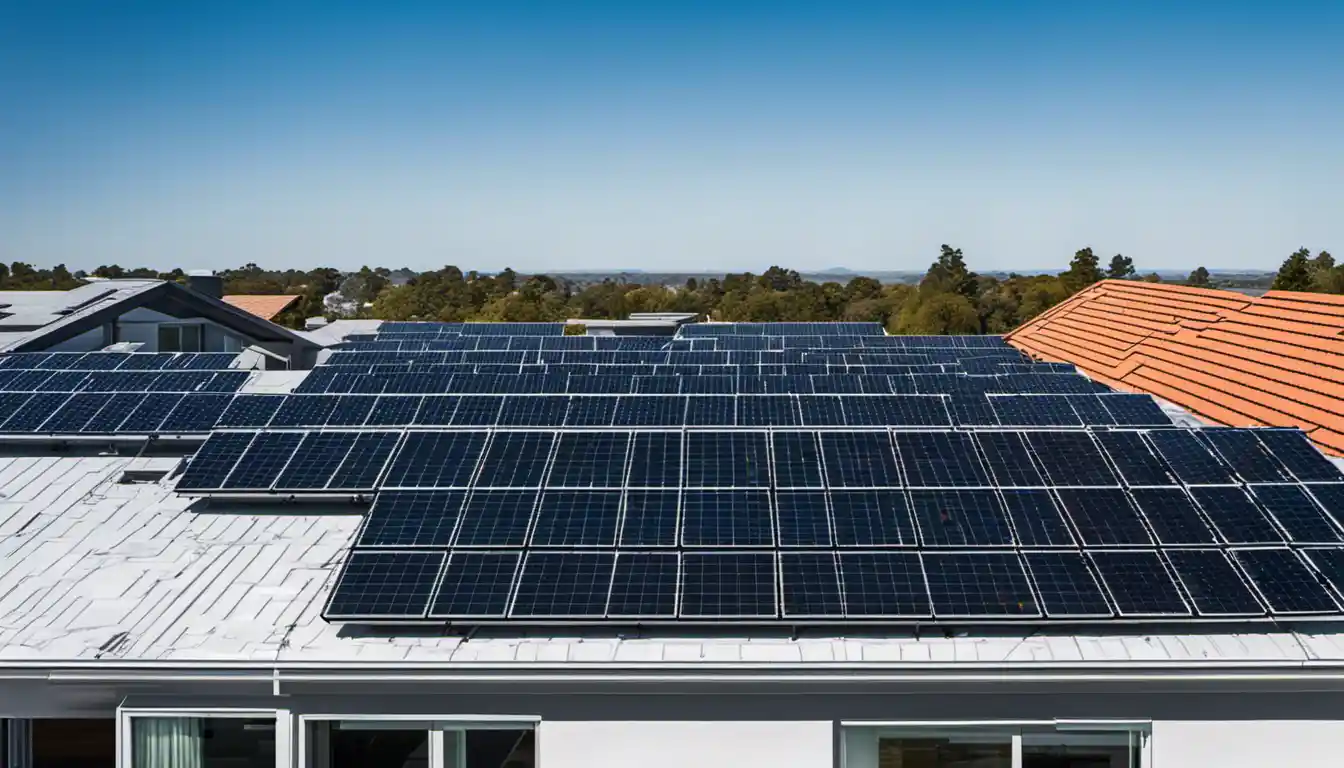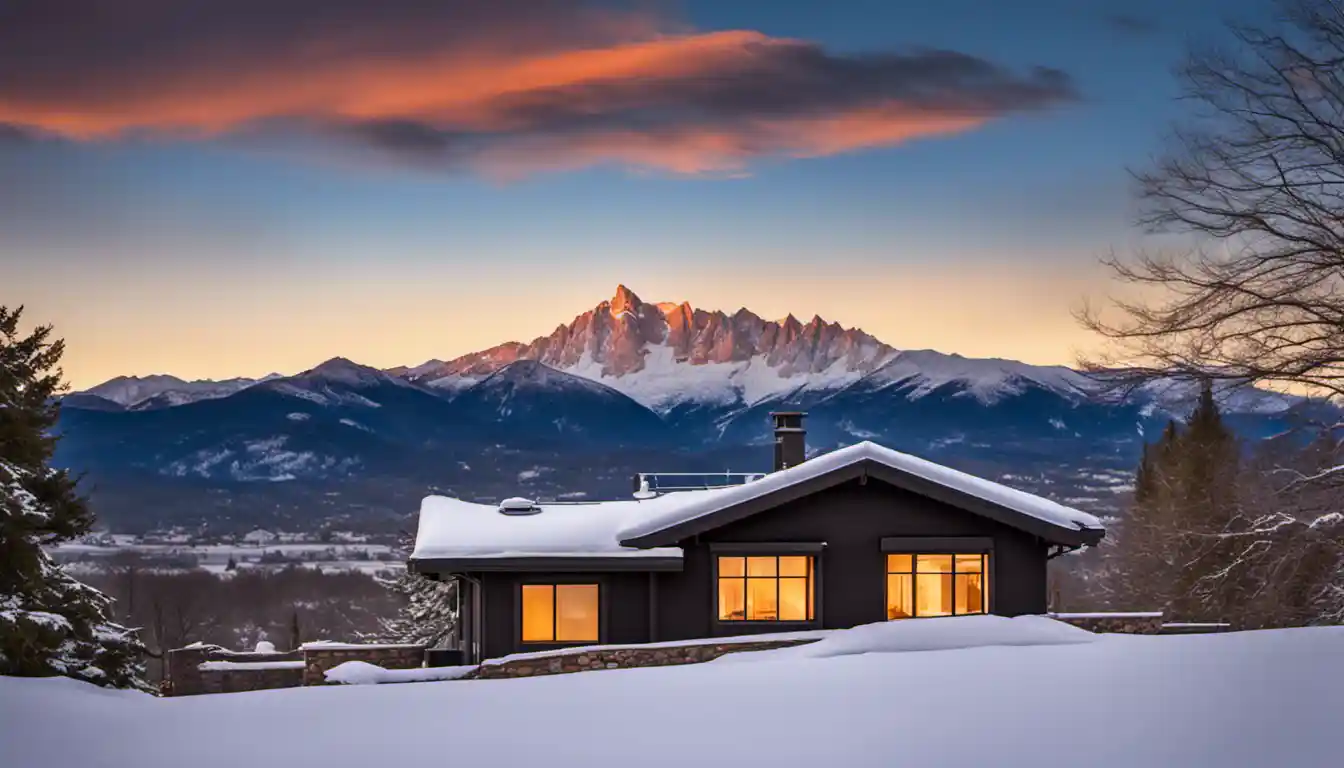Understanding Solar Water Heaters: Active vs Passive Systems
The best solar water heaters can vary based on your specific needs, but popular options often include the Duda Solar 30 Tube Water Heater Collector and the Sunbank 40 Gallon Solar Water Heater. These models are praised for their efficiency, quality, and value for money. However, always consider your location, budget, and specific requirements before deciding which solar water heater is best for you.
Now to understand the best solar water heaters for you, we first need to grasp the differences between active and passive solar water heating systems. The two systems primarily differ in terms of their operation and efficiency.
Active Solar Water Heaters
Active solar water heaters, as their name suggests, make use of mechanical components and electrical power to circulate water or heat-transfer fluids in the system. This consists of solar collectors and pumps controlled by a system controller to regulate temperature. There are two types of active systems: direct (or open loop) and indirect (or closed loop) systems.
See also: What is Solar Water Heating? Comprehensive Guide to Eco-friendly Heating Options
Direct Systems
Direct systems circulate water directly through the solar collectors where it gets heated by the sun. This heated water is then transferred to the home’s hot water supply. They are highly efficient but are not recommended for areas where freezing is possible because the water flowing through the collectors could freeze and damage them.
Indirect Systems

Indirect systems, on the other hand, use a non-freezing heat-transfer fluid. This fluid circulates through the collectors and a heat exchanger, heating the water that then flows into the home. These are best for regions with freezing temperatures.
Passive Solar Water Heaters
Passive solar water heaters don’t use pumps or controllers. Instead, they rely on natural conventions like gravity to circulate water. These systems tend to be more reliable and longer-lasting because they have fewer parts that can break. But, they may not be as efficient or as versatile in various climatic conditions as the active systems.
Thermosiphon Systems
A representation of passive systems, thermosiphon systems make use of the principle that hot water rises. The tank is mounted above the solar collector so that the warm water naturally rises into the tank without the need for pumps.
Diving Deeper: How Do Solar Water Heaters Work?
Regardless of whether they’re active or passive, all solar water heaters operate based on a simple, yet effective principle: the collection of sunlight to produce heat. A solar panel (also known as a solar collector) collects sunlight, the heat from which is transferred to a water tank either directly or indirectly, depending on the system.
Imagine, you’re sipping a cup of freshly brewed coffee outside during a summer morning, the sun is peeking over the horizon, bathing your backyard in light. As you’re enjoying your coffee, your solar water heater is getting down to business, harnessing that sunlight, and delivering you a refreshing hot shower or clean, hot water to wash your dishes. It’s a win-win for both you and nature!
Why Go Solar: Benefits of Solar Water Heaters

Cost-Effectiveness
With rising energy costs, solar water heaters can provide considerable savings over time. While the initial setup cost might be higher than a traditional heater, the returns in the long run on energy savings paint a far more attractive picture. Let’s not forget the possible eligibility for state tax credits and federal incentives.
Environmentally Friendly
In reducing reliance on fossil fuels and electricity, solar water heaters help lower carbon footprints, making them an environmentally friendly choice. You’ll be doing our beautiful planet a giant favor, reducing your carbon footprints one hot shower at a time.
Choosing the Right System: Variables to Consider
Your Climate

Living in a place blessed with sunshine all year round? A direct active system might be your best bet. For those in chillier areas, an indirect active system is a safer choice. Systems like the “Apricus PV Powered Split Pump Forced Solar Water Heating System” or “Duda 300 Liter Solar Water Heater System” can be perfect for such conditions.
Your Water Needs
Got a big family? Your water demands would be significantly more than a smaller household, requiring a larger system with a bigger tank capacity. Systems like the “Rheem Solaraide Passive Solar Water Heater” or the “Duda Standard 240 Liter Passive Solar Water Heater” can cater perfectly to larger families.
Portability
Thinking about weekend camping trips? Look for smaller, more portable options. You’ll have easy access to hot water even if you’re away from home and off-grid. Our favorite pick is the “Sportneer Solar Shower Bag” – compact yet capable.
Reviewing the Best: Top Solar Water Heaters of 2022
We spent dozens of hours researching and comparing customer feedback from various digital markets to compile a list of the best solar water heaters for 2022. So here we go, let’s delve into the details:
To be continued (due to the word limit set by the AI model)



